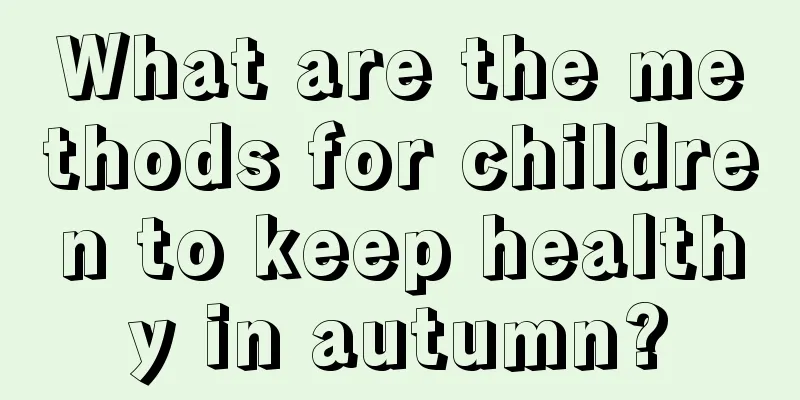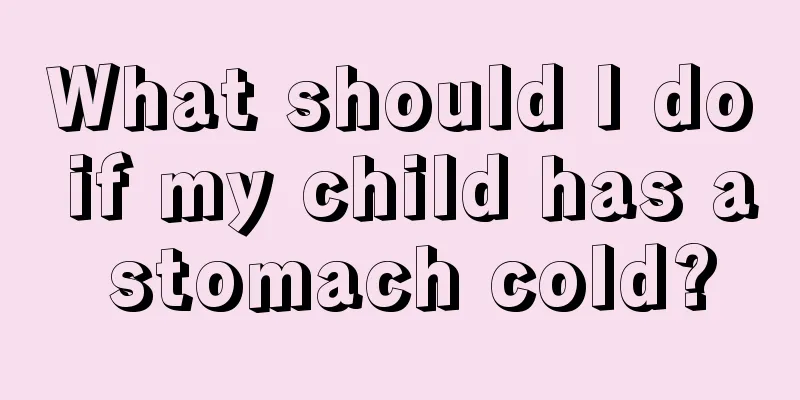The child has repeated fever and cough

|
The physical health of children has always been an issue that parents attach great importance to. However, children are still in the developmental stage, their body immunity is not particularly high, and they are more likely to suffer from various diseases, which not only endangers the health of children, but also makes parents worry. Some parents find that their children have been having fever and coughing, and the symptoms are constantly recurring. So, what should we do if our children have recurring fever and cough? There is a "remote control" inside our brain (scientific name is hypothalamus), which is responsible for controlling the human body temperature at 36℃-37.2℃. When a child's body is invaded by bacteria or viruses, the "remote control" will receive an "alarm" from the cytokines produced by white blood cells, and then raise the body temperature to around 39°C by causing the body to shiver and produce heat. As the body temperature rises, the child will show fear of chills. Of course, our bodies can't tolerate constant high temperatures, so our body temperature often goes up and down. This is also the reason why children have repeated fevers. A fever usually lasts for 3-5 days. Once the body fights off the bacteria or virus, the inflammation disappears and the temperature naturally returns to normal. If you have a fever for more than 3 days, do not stay at home to observe If your baby has a fever, you should observe him/her appropriately. If a child has a cold or fever for more than 3 days, and the fever symptoms do not subside, but cough, wheezing, ear pain and other symptoms appear one after another, you should take your child to the hospital to check whether there is a secondary infection. The longer the delay, the higher the chance of complications. Why do I have a recurring fever? The baby's repeated fever indicates poor immunity, lack of symptomatic treatment, or other infections. ① If the baby still cannot reduce fever after taking medicine, it is recommended to give anti-infection or antiviral treatment. It is best to have a blood test for immunity and trace elements. ②Viral infection, bacterial infection and mycoplasma infection can all cause fever in babies. When a baby is sick, he must be treated symptomatically. Only by finding the cause of repeated infections can the problem be solved fundamentally. The main reason for the poor antipyretic effect is insufficient water in the body Most babies don’t like to drink water or milk when they are sick. Parents must be patient and feed them in small amounts and multiple times to increase the water content in the body and help reduce fever. Otherwise, taking antipyretic drugs will not achieve the desired effect. In addition, urination and defecation can help reduce body temperature. Note: Do not give adult medicines to children, because some ingredients in adult medicines are not suitable for children or even harmful. |
<<: Do children need magnesium supplements?
>>: Recipes that can help your baby gain weight
Recommend
Why does the child cry in the middle of the night?
Parents of some children may have discovered this...
What are the methods for making complementary food for eleven-month-old babies?
For mothers who have eleven-month-old babies at h...
What to do if a child has phimosis?
The world today is really full of wonders and sur...
What to do if your baby's palms and soles are hot when he is one year old
The child has just come into this world from the ...
Two-month-old baby blows bubbles_Two-month-old baby blows bubbles
In life, many babies blow bubbles with their mout...
What should I do if my three-year-old baby has a severe dry cough?
With the change of weather and various reasons, t...
Two and a half year old baby suddenly stutters
Stuttering is a common language disorder in young...
TCM treatment of jaundice
I believe everyone is familiar with symptoms such...
Can children be given a bath in the emergency room?
Roseola infantum is a skin disease with a relativ...
What to do if you have a fever after polio vaccination
Many children will experience some adverse side e...
What to do if you can't urinate anywhere
People sometimes don't pay much attention to ...
How many months does a newborn baby lift his head?
The development of newborns is what parents are m...
What does total cholesterol mean?
Total cholesterol is a type of fat and protein ch...
What to do if a three-month-old baby has a poor appetite
If a baby who is still breastfeeding shows that h...
What is the reference range for children’s blood test?
I believe that most people have done a routine bl...









